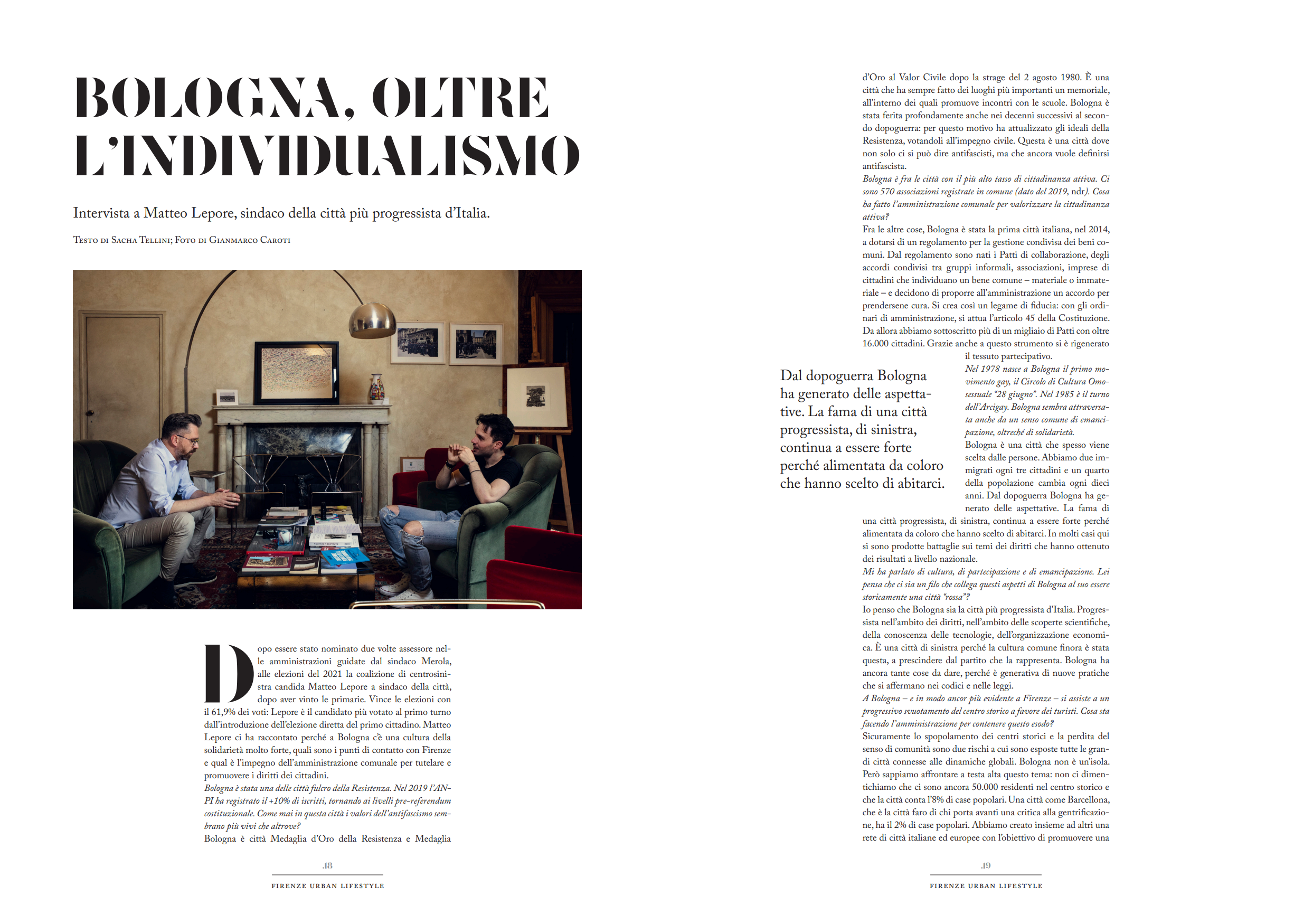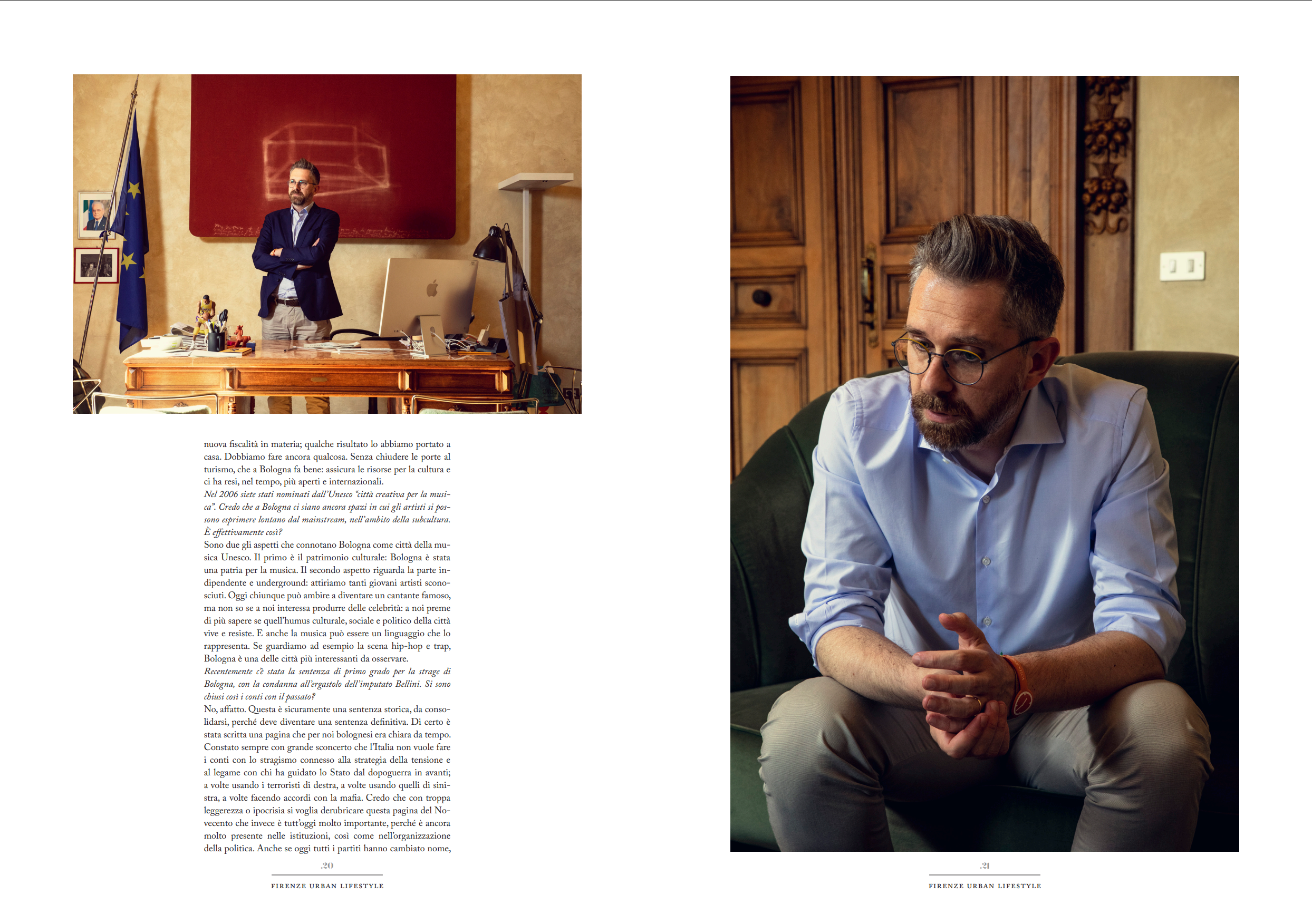

Interview with Matteo Lepore, mayor of Italy's most progressive city
An interview with Matteo Lepore, mayor of Bologna - a city with one of the highest rates of civic engagement in Italy, with 570 registered associations and over 16,000 citizens involved in collaborative pacts for the shared management of common goods.
This editorial assignment for Ful Magazine explores why Bologna maintains such a strong culture of solidarity, its connection to antifascist values, and the municipal administration's commitment to protecting and promoting citizens' rights. The photography captures the essence of progressive political leadership in contemporary Italy.


"Bologna is the most progressive city in Italy. Progressive in terms of rights, scientific discoveries, knowledge of technologies, economic organization. It's a left-wing city because the common culture has been this, regardless of the party that represents it."
This portrait session required documenting not just a political figure, but a representative of what Lepore calls "Italy's most progressive city." Bologna stands as a unique example in contemporary Italy - a city where antifascist values remain vibrant, where civic engagement flourishes, and where innovation in municipal governance continues to influence national policy.
The photography captures the intersection of historical consciousness and forward-thinking administration. From being the first Italian city to adopt regulations for shared management of common goods in 2014, to maintaining 8% social housing compared to Barcelona's 2%, Bologna represents an alternative model of urban governance.
"Bologna is a city where you can not only call yourself antifascist, but that still wants to define itself as antifascist. This is a city that has often been chosen by people - we have two immigrants for every three citizens and a quarter of the population changes every ten years."
The project explores themes of collective memory, civic participation, and the ongoing relevance of progressive politics in addressing contemporary challenges from gentrification to cultural preservation, from social housing to the fight against individualism.